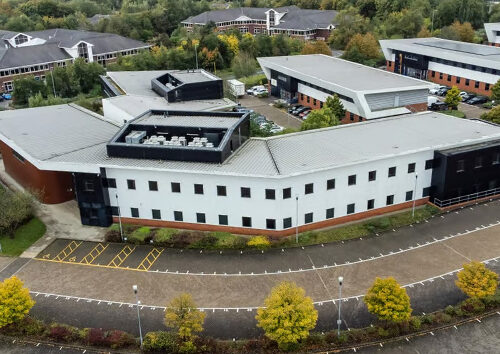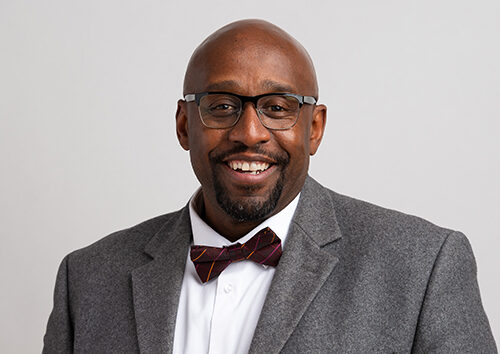20 June 2019 | Binfield, UK [Victor Hulbert]
“Christianity as default is gone,” states a headline in the UK’s Guardian newspaper. Quoting a report by Stephen Bullivant, a professor of theology and the sociology of religion at St Mary’s University, London, the conclusion is that, “The new default setting is ‘no religion’, and the few who are religious see themselves as swimming against the tide.”
![Some 125 participants attending the TED Bible Conference 2019 at Newbold. [Photo credit: Victor Hulbert] bible conference 20192](https://ted.adventist.org/sitenews/wp-content/uploads/2019/06/images_news-2019_bible_conference_20192.jpg) Seventh-day Adventist leaders and lay-people meeting at the Trans-European Division (TED) Bible Conference beg to disagree. As Artur Stele, General Conference Vice-President stated more than once in his Tuesday morning devotional, “Remember the supernatural perspective.” He stated that, “Humanly speaking, there is no future for the Church,” but then went on to share how the book of Acts gives him hope.
Seventh-day Adventist leaders and lay-people meeting at the Trans-European Division (TED) Bible Conference beg to disagree. As Artur Stele, General Conference Vice-President stated more than once in his Tuesday morning devotional, “Remember the supernatural perspective.” He stated that, “Humanly speaking, there is no future for the Church,” but then went on to share how the book of Acts gives him hope.
Stele noted that through the Acts the Holy Spirit is outpoured on five distinct groups of people: The disciples (Acts 2), Samaritans (Acts 8), Saul/Paul (Acts 9), Gentiles (Acts 10), and members (Acts 19).
 “If the Holy Spirit can change Saul into Paul, what can He do with us in Europe?” Stele challenged. Noting the other people groups, he equally challenged, “How do we enthuse Pastors to greater service? How can we involve members in the mission of the Church? How are we to reach the secular mind? How can we encourage greater confidence in the fundamental beliefs of the Church? How can we reach other religions?”
“If the Holy Spirit can change Saul into Paul, what can He do with us in Europe?” Stele challenged. Noting the other people groups, he equally challenged, “How do we enthuse Pastors to greater service? How can we involve members in the mission of the Church? How are we to reach the secular mind? How can we encourage greater confidence in the fundamental beliefs of the Church? How can we reach other religions?”
His answer was clear and, to some, may seem rather simple. “If the church belongs to God, the Holy Spirit is responsible for its mission and the supernatural aspect of the church.” For Stele, the empowering of the Holy Spirit in Acts, “is an incredible source of encouragement and hope, turning a problem into potential, turning enemies into our friends. The best days in Europe are still ahead.”
Those ‘best days in Europe’ became a strong focus throughout the conference as around 125 participants from all parts of Europe gathered at Newbold College of Higher Education from 17 – 19 June, discussing a rich and challenging mixture of theology and practical ministry.
“What an experience! I am so glad I was able to attend,” reflected Carolyn Shultz, a lay-member from the North England Conference. “The topics were so relevant for today, the speakers were inspiring, the organisation was superb, and the fellowship and networking was encouraging and fun! Not only was this conference informative, it gave me new hope in a dysfunctional world.”
 Those topics included very practical issues on how to be a church of and for 21st Century Europe. This included the changing history of Adventist Identity from the time of the Millerites when, as Dr Daniel Duda described it, “the world was much simpler”, through the discovery of mission beyond the boundaries of North America, re-evaluation of Righteousness by Faith in 1888, the publication of Questions on Doctrine in 1957, the challenge of national or tribal identity verses Adventist identity in times of conflict, and currently the challenge of “what worked well in an era of optimism becoming harder in a world of disillusionment.”
Those topics included very practical issues on how to be a church of and for 21st Century Europe. This included the changing history of Adventist Identity from the time of the Millerites when, as Dr Daniel Duda described it, “the world was much simpler”, through the discovery of mission beyond the boundaries of North America, re-evaluation of Righteousness by Faith in 1888, the publication of Questions on Doctrine in 1957, the challenge of national or tribal identity verses Adventist identity in times of conflict, and currently the challenge of “what worked well in an era of optimism becoming harder in a world of disillusionment.”
With that varied and complex history, Duda then gave the solution by repeating the question that Jesus asked the disciples in Caesarea Philippi: “Who do you say the Son of Man is?” Peter replied accurately, “You are the Christ, the Son of the living God.”
The question was not, “What do people think about my preaching, or my parables?” Duda noted. Jesus asks about identity. In other words, Duda concluded “The person of Jesus precedes the doctrines of Jesus.” The one will follow from the other.
 This idea really spoke to Svjetlana Veble, Executive Secretary of the Adriatic Union. “There were many exceptional presentations during this Bible Conference,” she said, “but the presentation by Daniel Duda, ‘Adventist Identity’, has spoken to me the most. His style and clarity of explaining such a complex issue like our identity, a historical overview of the problem and the hope for the future, give me inspiration and confirmed my convictions.”
This idea really spoke to Svjetlana Veble, Executive Secretary of the Adriatic Union. “There were many exceptional presentations during this Bible Conference,” she said, “but the presentation by Daniel Duda, ‘Adventist Identity’, has spoken to me the most. His style and clarity of explaining such a complex issue like our identity, a historical overview of the problem and the hope for the future, give me inspiration and confirmed my convictions.”
João Martins fully agrees but, as CEO of ADRA Europe, he was very pleased to note that it was highly useful and enlightening to see the direction that the Church is taking in opening more towards communities and understanding the responsibilities we have to serve them. “In my opinion that is the way to succeed with the mission in Europe,” he said.
This presentation, along with others, will be available on the TED YouTube channel in due course.
 Timo Flink from Finland was impressed with the depth of research and reasoning by Dr Denis Fortin of Andrews University. He presented twice on issues of Ecumenism – in the first presentation looking at Adventist dialogue, and later in a workshop period tracing the varied history of the Catholic Church’s cautious view towards ecumenism. “The presentations by Denis Fortin gave some new thoughts and ideas that I haven’t heard before,” Flink confessed. “The ecumenical dialogue appears to be a more complex issue than I had thought.”
Timo Flink from Finland was impressed with the depth of research and reasoning by Dr Denis Fortin of Andrews University. He presented twice on issues of Ecumenism – in the first presentation looking at Adventist dialogue, and later in a workshop period tracing the varied history of the Catholic Church’s cautious view towards ecumenism. “The presentations by Denis Fortin gave some new thoughts and ideas that I haven’t heard before,” Flink confessed. “The ecumenical dialogue appears to be a more complex issue than I had thought.”
Others were impressed both by the musical skills of Dr Tihomir Lazić, and his ability to present a clear picture of where the Seventh-day Adventist Church stands in the 21st century. “We are not just the messenger, we are the message,” he said. “Twenty-first century Europe wants to see who you are first, then they will listen to your message!” He emphasised the need for authenticity.
This impressed Neven Klačmer from Croatia. “Dr Lazić gave me some very practical ideas based on the Bible and how the Spirit is working within us, through us and most importantly, around us. We must recognise His work and engage where He is already working.”
 Veble adds, “Sometimes I have my own thoughts and doubts about future of mission in Europe in general and Croatia in particular. However, through this Bible conference, I see that we have many great leaders, who provide good answers, and challenge us to rethink and be brave to continue our work.”
Veble adds, “Sometimes I have my own thoughts and doubts about future of mission in Europe in general and Croatia in particular. However, through this Bible conference, I see that we have many great leaders, who provide good answers, and challenge us to rethink and be brave to continue our work.”
Among those good leaders were Dr Jan Barna, who gave a very clear explanation of Christ in a perfect Church, Wagner Kuln, who took a very practical look at Missional theology, and the likes of Sigve Tonstad, Elliot Williams, John-Claude Verrecchia, Bjørn Ottesen and numerous others.
 “I was so impressed by Matija Kovačević,” states retired pastor, David West. An MA theology student at Newbold, Kovačević eloquently presented a workshop on the Church as a safe place for Psychological Diversity. He was one of several student presenters. “If this is the calibre of students that Newbold is training, the future of ministry in Europe is in safe hands,” West proclaimed.
“I was so impressed by Matija Kovačević,” states retired pastor, David West. An MA theology student at Newbold, Kovačević eloquently presented a workshop on the Church as a safe place for Psychological Diversity. He was one of several student presenters. “If this is the calibre of students that Newbold is training, the future of ministry in Europe is in safe hands,” West proclaimed.
Shared meals and networking time added to the atmosphere, and presenters’ ideas led to a few late-night discussions. But what difference will it make as people return home?
“I am coming away with an even greater motivation to live God’s love in the world, and to be more intentional about being the eyes, mouth, heart and hands of God in a broken world,” states TED Family Ministries director, Karen Holford. She says, “I have benefitted from taking time out to be refreshed by listening to some of the greatest thinkers in Adventism, people who have clearly reflected on the heart of our mission and put God’s love and Christ’s compassion at the very centre of all that we do for Him.”
 Lay-member, Erica Hole states, “I appreciated the refreshing dynamic of openness in the presenters’ exploration of Adventist identity, their honest acknowledgement of the brokenness of the Church while still expressing a determination to stick with it and be instruments of God’s nurture and healing.” It also had a practical result: “Participating in the conference made me want to be a better human being. After Dr Kuhn’s presentation on missional theology I found myself at the railway station trying to initiate pleasant small talk with the ticket clerk, whom I previously perceived as routinely brusque and mean to all her customers.”
Lay-member, Erica Hole states, “I appreciated the refreshing dynamic of openness in the presenters’ exploration of Adventist identity, their honest acknowledgement of the brokenness of the Church while still expressing a determination to stick with it and be instruments of God’s nurture and healing.” It also had a practical result: “Participating in the conference made me want to be a better human being. After Dr Kuhn’s presentation on missional theology I found myself at the railway station trying to initiate pleasant small talk with the ticket clerk, whom I previously perceived as routinely brusque and mean to all her customers.”
 Robert Csizmadia reflects that as a leader, he is happy that he could grasp a deeper understanding of important issues that our Church struggles with, including identity, and Sigve Tonstad’s presentation on ‘Community and Commission in Revelation’ has, again, forced him to think ‘outside the box’ in terms of mission and how he re-reads the Bible.
Robert Csizmadia reflects that as a leader, he is happy that he could grasp a deeper understanding of important issues that our Church struggles with, including identity, and Sigve Tonstad’s presentation on ‘Community and Commission in Revelation’ has, again, forced him to think ‘outside the box’ in terms of mission and how he re-reads the Bible.
Veble maybe sums it up best for many, “I take home hope and a strong faith that we can work smarter and better for our communities and people around us. Even if it will be hard and tiresome, there is a good cause that will keep us active in bringing the love of Jesus to everybody around us.”
Perhaps these three days really can change Europe.
A further selection of photos is available on the TED Facebook Page.
tedNEWS Staff: Victor Hulbert, editor; Deana Stojković, associate editor
119 St Peter’s Street, St Albans, Herts, AL1 3EY, England
E-mail: [email protected]
Website: www.ted.adventist.org
tedNEWS is an information bulletin issued by the communication department of the Seventh-day Adventist Church in the Trans-European Division. Readers are free to republish or share this article with appropriate credit including an active hyperlink to the original article.



